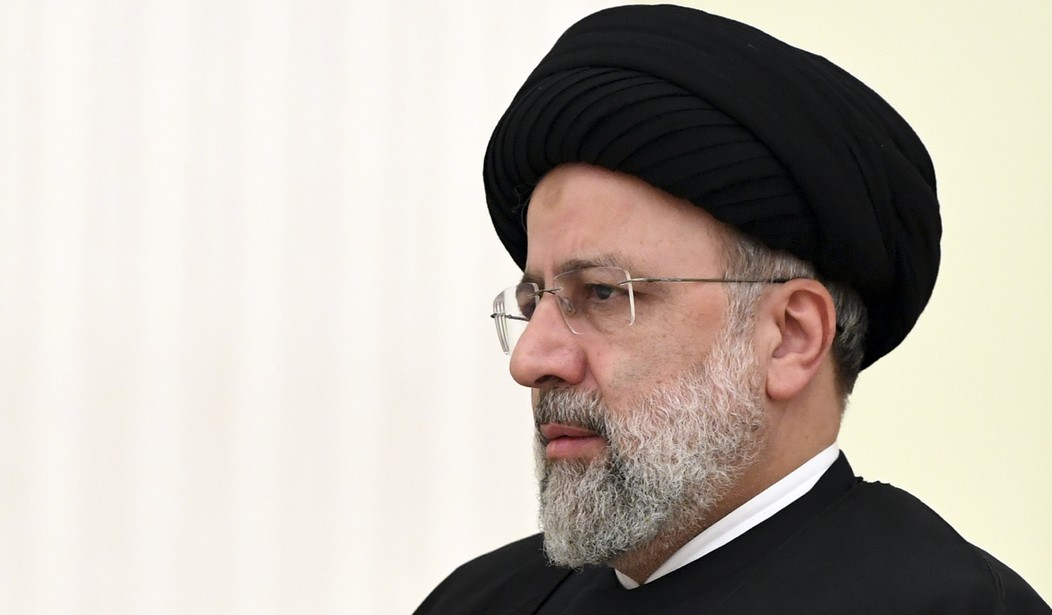The United Nations is on the verge of giving a platform to one of the world’s worst human rights violators. This mistake can and must be fixed by the US government.
The US can easily prevent the regime President Ebrahim Raisi’s participation in the 77th session of the UN General Assembly, by denying him a visa. It has abundant cause to do so, based both on national security concerns and on basic principle.
Last month, the Department of Justice unsealed its case against a member of the Islamic Revolutionary Guard Corps (IRGC), who had been observed actively attempting to facilitate the assassination of former National Security Advisor John Bolton on US soil. His known activities date back to only two months after Raisi was sworn in as president of the regime.
According to human rights organizations, since Raisi took office last year, the regime has conducted a "horrific wave of executions" – an ominous accomplishment for a regime already recognized as having the world’s highest annual rate of executions per capita. The total so far in 2022 has exceeded 570executions,already surpassing 2021 figures.
Meanwhile, the regime's judiciary has implemented a number of barbaric sentences of corporal punishment, including the removal of convicts’ eyes and amputations. And Raisi himself issued a directive for stricter enforcement of “chastity and hijab” last month, allowing for more “Guidance Patrols” to harass and even assault women in public for allegedly flouting forced veiling laws.
Recommended
Efforts to reassert the regime’s hardline ideology have also extended far beyond Iran's borders. Assassination plots against Bolton and former Secretary of State Mike Pompeo are examples of Tehran’s escalating brazenness. And those individual threats are dwarfed by others which have been directed against entire communities like that of Ashraf 3, the Albanian residence of roughly 3,000 expatriate dissidents affiliated with the leading pro-democracy opposition group, the Mujahedin-e Khalq (MEK).
In July, that organization was urged to cancel a planned rally at Ashraf 3, after Albanian authorities revealed there had been credible terrorist threats against it. That revelation coincided with a number of arrests of Albanian residents who were believed to be conspiring with the Iranian regime. The arrests were the culmination of four-year investigation which evidently grew out of the prior disruption of a bomb plot targeting the same community in 2018. Later that same year, Iranian intelligence operatives were also thwarted in a similar attempt to bomb an international gathering near Paris that had been organized by the MEK's parent coalition, the National Council of Resistance of Iran (NCRI).
Those earlier plots highlight the very reason why Raisi was designated by Supreme Leader Ali Khamenei to take over the presidency last year. Raisi’s promotion came in the wake of a series of nationwide, anti-government uprisings in which the MEK played a leading role, according to Khamenei himself. Raisi has historically played significant roles in violent crackdowns on the democratic opposition.
In the summer of 1988, he was one of four officials to serve on the Tehran “death commission” that interrogated political detainees at Tehran and Gohardasht Prisons. This was to execute a religious decree, or fatwa, issued by the regime’s founder Khomeini, which accused MEK supporters of "enmity against God." Khomeini ordered: " Those who are making the decisions must not hesitate, nor show any doubt or be concerned with details" when executing MEK members.
Over the course of about three months in 1988, the regime executed around 30,000 political prisoners, at least 90% of whom were MEK sympathizers. No one was held accountable for any of the killings until 2019 when Swedish authorities arrested a former Iranian prison official named Hamid Noury. He was later handed a life sentence for crimes against humanity. The international community’s prior inaction in the face of countless testimonials about the massacre provided the Iranian regime with an abiding sense of impunity in matters related to human rights.
Western powers have not shown interest in formally investigating the massacre, much less demanding accountability to higher-level officials. But many of them hold those positions precisely because of the actions that they took to suppress dissent in the 1980s. Raisi is the prime example, which is why he is dubbed by the Iranian people as the "Butcher of Tehran."
If he is permitted to speak at the General Assembly this month, the UN and by extension the US will be legitimizing the regime’s practice of lionizing human rights abusers. Furthermore, they will be reinvigorating the sense of impunity enjoyed by the Raisi administration and the regime as a whole.
The US government should guide the international community in the right direction by denying Raisi a visa, condemning his actions on the death commission and as president, and making it clear that he should face accountability.

























Join the conversation as a VIP Member